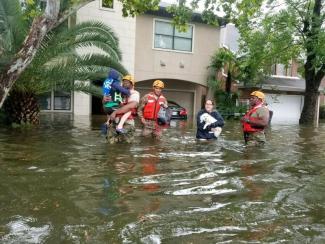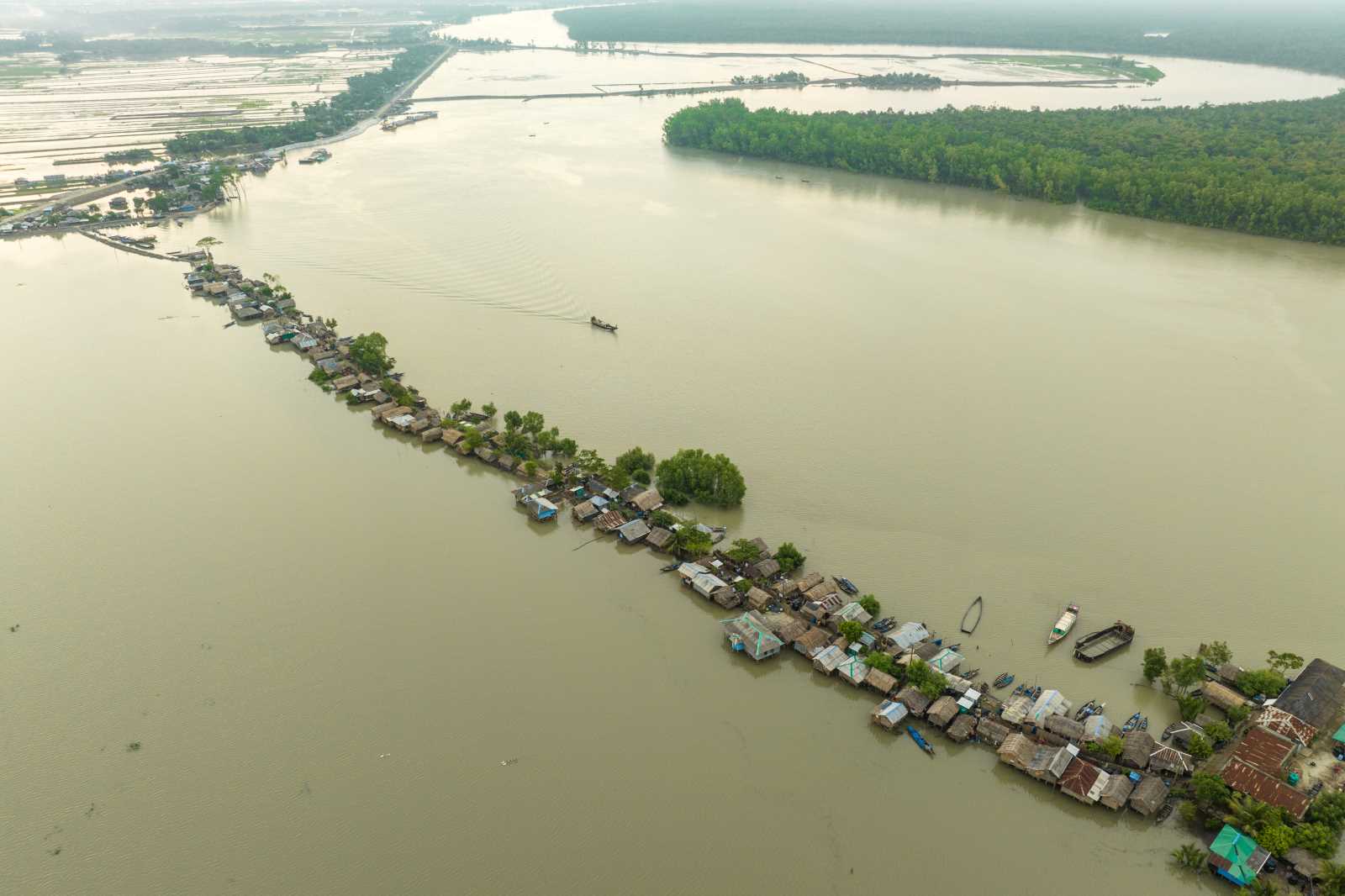Relevant reading
Great disenchantment

There are three possible reactions to this sobering insight. This essay will discuss each one with reference to a recently published book.
Some dismiss the idea of “high-level politics” and are looking for ways to solve the climate problem without multilaterally coordinated action – and even without national governments assuming a leading role. The book by Michael Bloomberg and Carl Pope (2017) takes this approach. An encouraging thought in this context is that the fossil-fuel based industrial society, which we must move on from, was not created according to some master plan.
Some authors try to understand the mental stubbornness that stops people from taking the appropriate collective action in response to the overwhelmingly obvious warning signals. The scope of such analyses extends far beyond climate policy, and the thinking is generally based on an assumption that has become commonplace: industrial society in its current form needs a major transformation. Bruno Latour’s excellent and sharp-witted book (2017) belongs to this school of thought.
Historical experience tells us that in order to achieve great things, it is sometimes best to set one’s sights low. Paradigm changes – at least in the arts and sciences – were most often brought about by people focusing on things that were apparently mere details. Focusing on details is certainly hard once it is clearly understood that a radical shift is required, but practitioners of sober climate science are capable of such focusing. The third book (Pam Berry et al., 2017) is based on a collaboration between about 150 leading scientists and simply asks: What will happen if humanity stays on its current course? The book offers a preview of the apocalypse, though only as it would affect Europe.
Bloomberg and Pope
The authors of the first book are two prominent persons from extremely different backgrounds: Carl Pope is an environmentalist and former top leader of the Sierra Club. Michael Bloomberg is a media magnate and former mayor of New York City. Most of the book was written when it became conceivable that Donald Trump might be elected US president, and some parts were composed after his inauguration. The book’s perspective is first and foremost American. Its message is pretty much that, even with a climate-change denier in the Oval Office, climate goals can be achieved from below, through a deep commitment to democracy.
The book starts with two introductory sections on climate change and the current state of knowledge. The following five sections address issues ranging from energy to adaptation. Both authors contributed individual sub-sections to every issue. In the section on energy, for instance, Bloomberg discusses “coal’s toll” while Pope assesses “green power”. Strictly speaking, the book is thus not a joint work. The conclusion, however, is a joint effort by the two co-authors.
Can climate change be tackled regardless of whether there is leadership from the top in the US or even globally? The idea may seem far-fetched. The authors correctly point out that their optimism of the world being able to opt for the “cool” path rests on things that rarely attract much public attention. They state: “Each part of the problem of climate change has a solution that can make our society healthier and stronger.” Accordingly they want decentralised political action and market decisions to bring about change along with social side-benefits.
No doubt, the USA in particular needs such change. But the authors fail to point out why such change has not occurred earlier and why it should all of a sudden happen now.
Latour
The second book is by Bruno Latour, the French sociologist and philosopher of science. It is of an entirely different quality. Latour discusses the global community’s ongoing environmental crisis before the backdrop of the history of philosophy. He considers the European Enlightenment and discusses the tensions between science, religion and political power.
Latour fearlessly examines the basis of any possible hope and deconstructs whatever he considers illusory. His starting point is: “... facing the ecological mutation, instead of getting all excited, as our ancestors did facing the discovery of new lands, we remain frozen, indifferent, disillusioned, as if, at bottom, nothing could happen to us. This is what we have to understand.”
According to Latour, the state of the earth should normally have mobilised years ago, “just as any question of identity, security or property would surely have done”. Therefore he believes that we must explain why “ecological questions [do] not seem of direct concern to our identity, our security and our property”.
Latour answered these questions in his “Gifford Lectures on Natural Religion” at the University of Edinburgh in February 2013. The puzzle’s solution, according to him, is to be found in religious and quasi-religious convictions that shape our collective identities, even if we are not entirely aware of them. US citizens, for example, feel that they are beyond history, an attitude that the prominent political scientist Francis Fukuyama clearly captured in his book, “The end of history” (though arguing from a different perspective). Those who feel they have reached the end of history can hardly be shaken by threats of historic proportions. Even a modern-day Job like Al Gore, the climate activist and former vice president, struggles to make himself heard.
Berry et al.
The booklet by Berry et al. (2017) arose from three separate major projects funded by the EU. In this case, it was inadequate, as European funding institutions seem to have recognised, to present research results in the usual format of 20-page papers written in technical jargon that only experts understand. What is needed instead are more or less integrated publications that satisfy the general public’s desire to be informed about the relevant results of publicly funded research. For this purpose, compilations of individual 20-page papers simply will not do.
Integrated publications must be interdisciplinary and written by several people. So far, only few have been produced. One reason is that busy scientists typically would have to write them in their free time. This pioneering booklet is a valuable first effort made by the EU Directorate-General for Research to change matters.
The authors address the topics of agriculture, freshwater, coastal protection, forestry, nature conservation, human health, urban areas and climate impacts in an increasingly globalised world. It is striking how “nature-oriented” most of these topics are. Only the chapters on coastal protection and urban areas touch on human-built infrastructure.
The choice of topics was ultimately driven by the desire to have an impact on the respective areas of policymaking. However, the more important areas would have been those in which policymakers modify the environment long term with new infrastructure and other buildings. Such interventions certainly require a long-term vision.
The chapter on “Climate impacts in an increasingly globalised world” is truly innovative. So far climate science (like other fields) has been dominated by territorial thinking. Scientists model the global trend, zoom in on a region they are interested in and then typically announce their findings as “the” expected consequences of climate change.
This approach is obviously flawed, however. In an economically interrelated world, for instance, Europe may well have to cope with strong impacts of extreme events in other world regions. Such impacts may even matter more than what happens in Europe itself. Science must finally recognise the inadequacy of the old model, so the nations of any given world region will be enabled to recognise the real climate risks they face, instead of being led astray by research with a too narrow focus.
This booklet is a pioneering first attempt at producing an integrated publication on “high-end scenarios”. It has shortcomings that are typical of fledgling attempts. The DG Research should follow up as soon as possible with a volume of essays that reflect sectors according to their policy relevance.
Hans-Jochen Luhmann is an emeritus fellow of the Wuppertal Institute for Climate, Environment and Energy.
jochen.luhmann@wupperinst.org
References
Bloomberg, M., and Pope, C., 2017: Climate of hope. How cities, businesses, and citizens can save the planet. New York, St. Martins Press.
Latour, B., 2017: Facing Gaia: eight lectures on the new climatic regime. Wiley, Polity Press.
Berry, P. et al. (eds.), 2017: High-end climate change in Europe. Impacts, vulnerability and adaptation. Sofia, Pensoft Publishers.
http://impressions-project.eu/getatt.php?filename=Highend_brochure_final_14199.pdf










